The details of IP mobility support software that must be included are specified in the Internet document RFC 2002: click here
If a host wants to become nomadic (move around across multiple IP networks), then its home network must implement IP mobility support. One of the routers in its home network must become a home agent
The following is one possible solution that uses a foreign agent to accommodate a nomadic host in a foreign network.
Foreign Agent = router at a foreign network which is also running the special mobile IP software.
Agents (routers) with mobility support will periodically broadcast agent advertising messages (Ethernet broadcast).
- Before it leaves its home network, the nomadic host listens for
agent advertising messages on its own network and
record the IP address of the agent on its home network.
This agent is the home agent for the nomadic host:
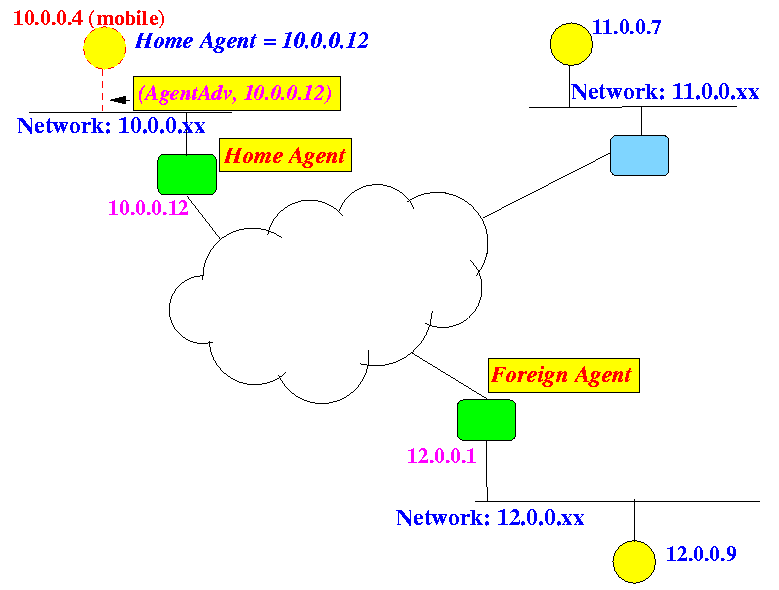
- When the nomadic host leaves its home network and enters a foreign
network, it listens again for agent advertising messages on
the foreign network.
When it receives a agent advertising message, it records the IP address of the agent.
The agent on the foreign network is the nomadic host's foreign agent:
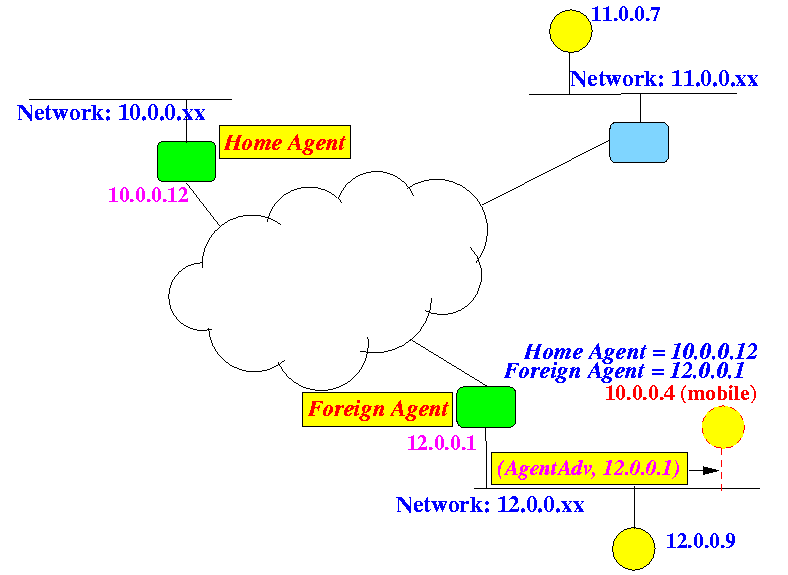
- The mobile host sends a Register message to
that agent.
When the foreign agent receives a Register message, it sends a CareOf message to the host agent and the CareOf message will contain:
- IP address of the nomadic host
- IP address of the foreign agent
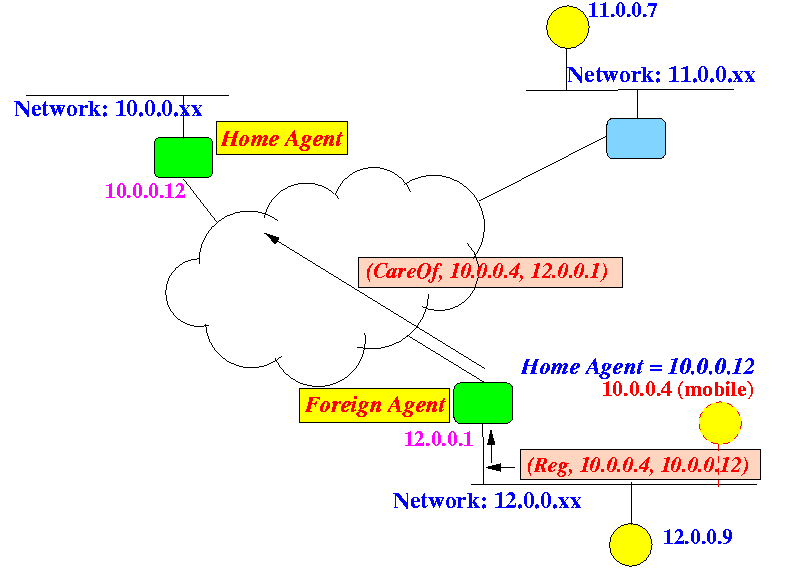
- Upon receiving the CareOf message, the home agent
creates an IP tunnel for the nomadic host.
The tunnel will have:
Destination | Next --------------+--------------- IP address | (Virtual Tag) of nomadic | IP address of host | foreign agent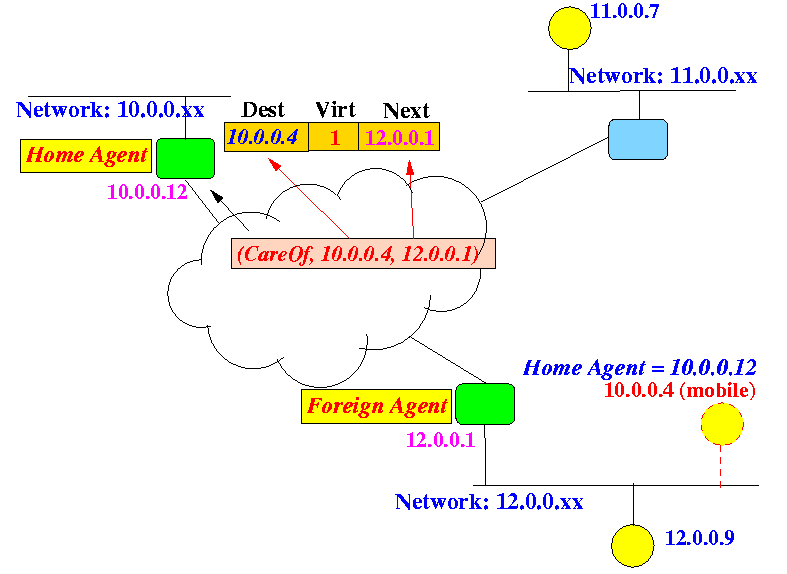
The effect of this is:
- When the home agent (a router) receives a message destined for
the nomadic host, it will
tunnel the message
to the foreign agent !
(So you see yet another application of tunnels !)
The figure below depicts the situation after successful registering:
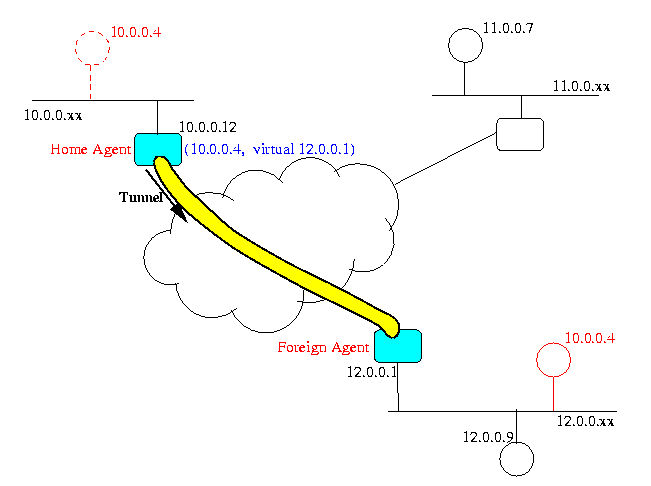
- NOTE: The tunnel is
unidirectional
(only from home agent to foreign agent).
- You will see later that the reverse direction is not necessary.
- When the home agent (a router) receives a message destined for
the nomadic host, it will
tunnel the message
to the foreign agent !
-
Here is an example of how the mobile IP host receives messages:
(To understand what's going on, you need to understand tunneling: click here)
- Host (11.0.0.7) sends an IP message to the mobile host
(10.0.0.4).
The message is routed using the network ID towards the home network (10.0.0.xx):
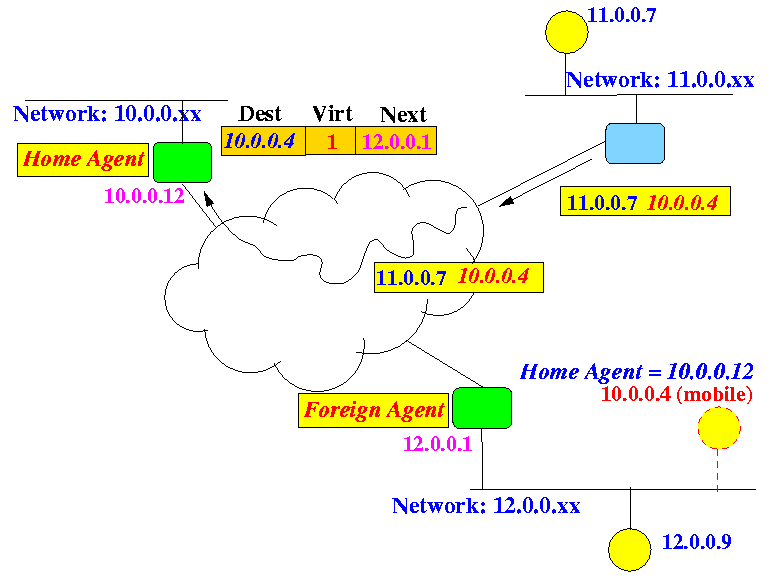
- The message is received by the
home agent
which detects the
virtual
entry in its routing table.
The message is then encapsulated inside a new IP message and sent towards the foreign agent (12.0.0.1):
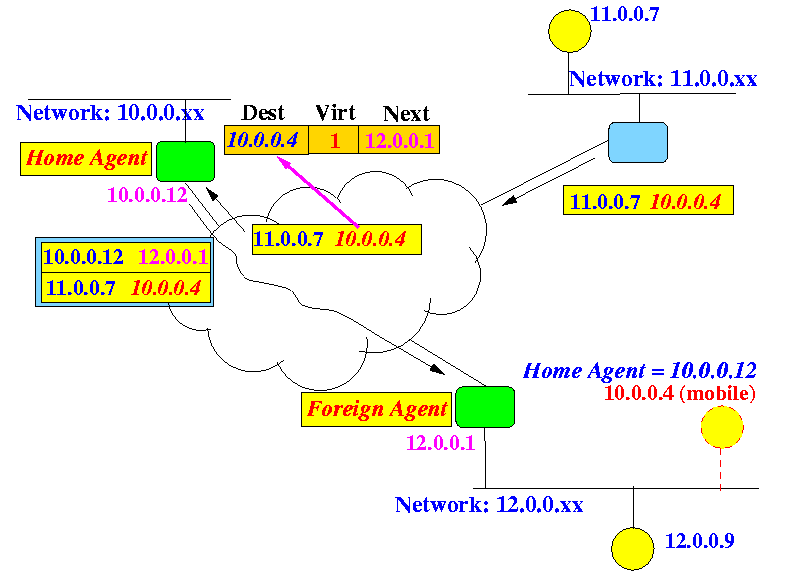
- The message is then received by the
foerign agent
which detects that itself is the
destination
The inner message is then extracted
Although the network ID is different from 12.0.0.xx, the CareOf entry in the foreign agent will instruct the agent to sent the message on the LAN towards (10.0.0.4):
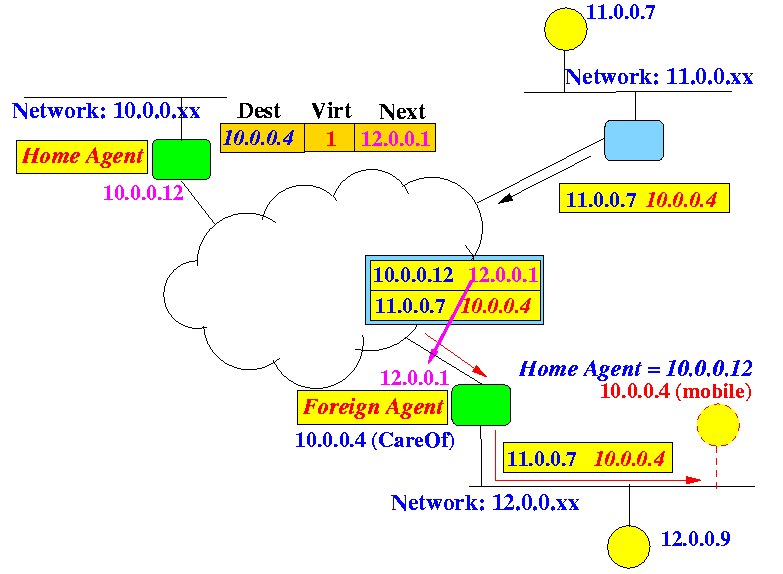
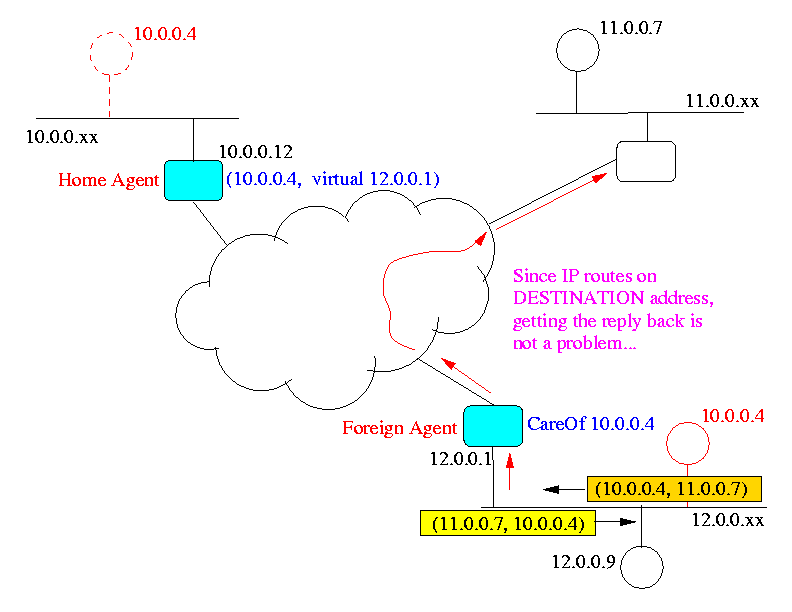
|
- The reason is simple: IP routing is based on the
destination IP address.
Since the source address does not matter, the message
can be sent from anywhere and it will reach the destination....
This "feature" is causing a lot of havoc nowadays: denial of service attacks. You can set your IP address of your home computer to any IP address that you want and is able to send messages to Yahoo or other websites (you won't get any replies, but that's not the point of a DoS attack). You can flood the website with senseless messages and they don't know where or who did it....)
- You are at the mercy of the foreign network for providing IP mobility support by running specialized Mobile IP software in the foreign agent (router).
It would be nicer if you can do mobile IP using a more common service that is available in most networks.
A more commonly available service is DHCP and the Internet documentation RFC 2002 also documents a mobile IP solution that uses DHCP. This solution do not require the foreign network to provide any additional support (other than DHCP service).